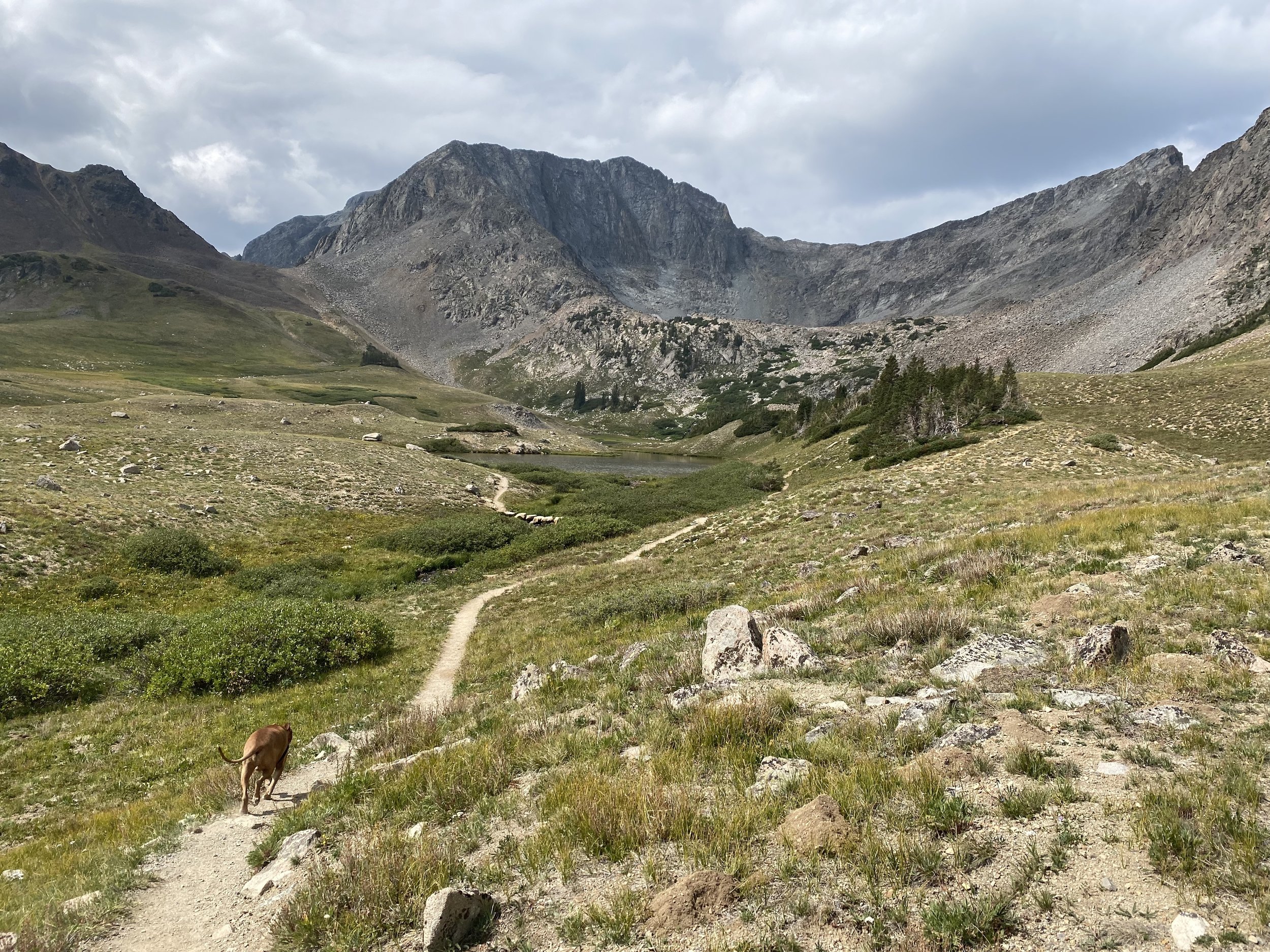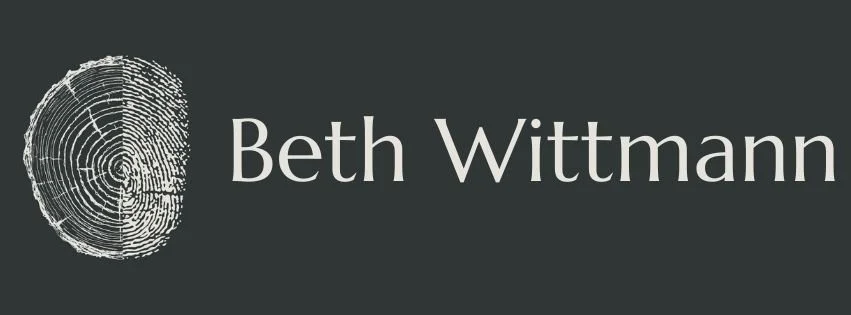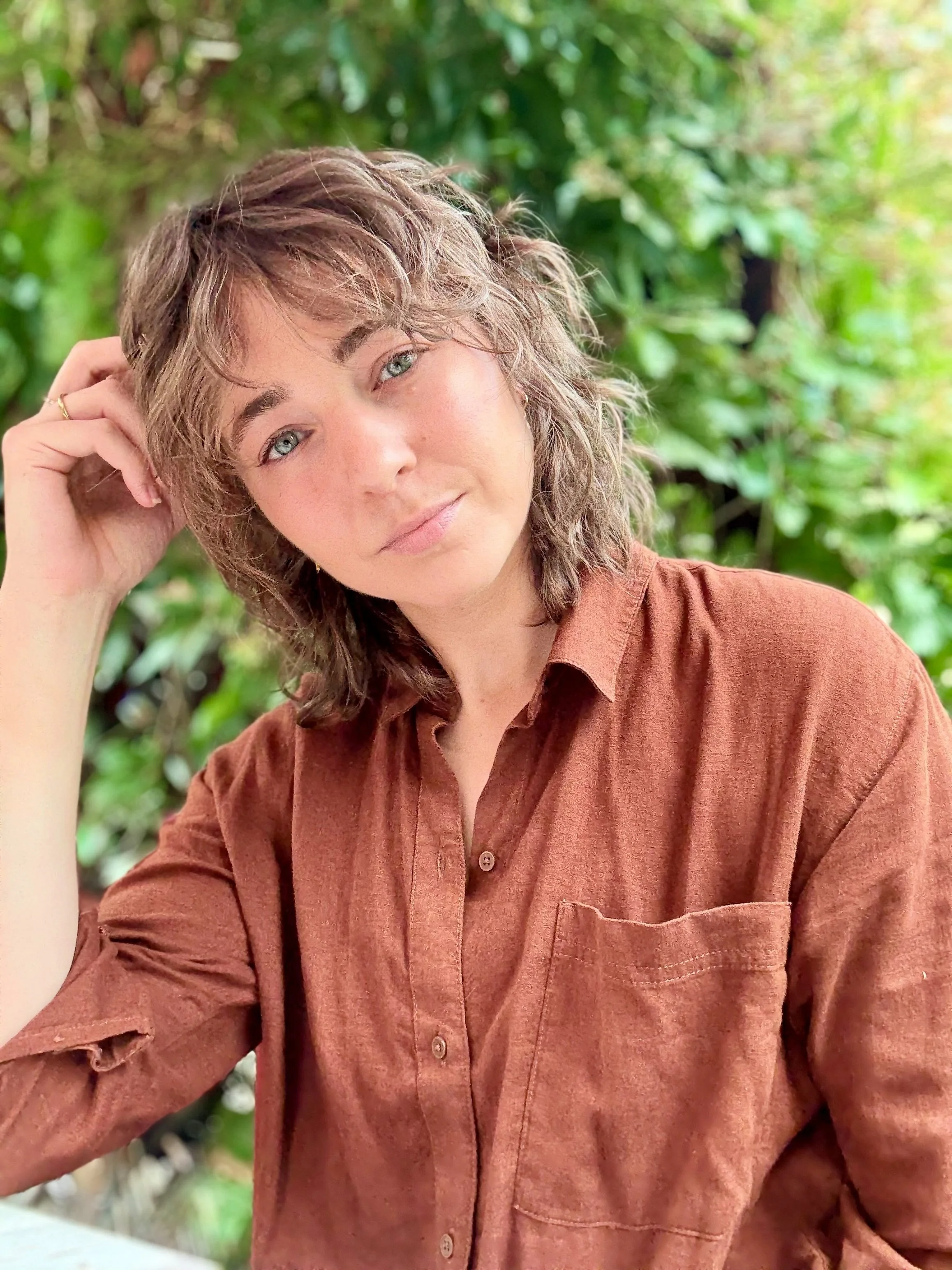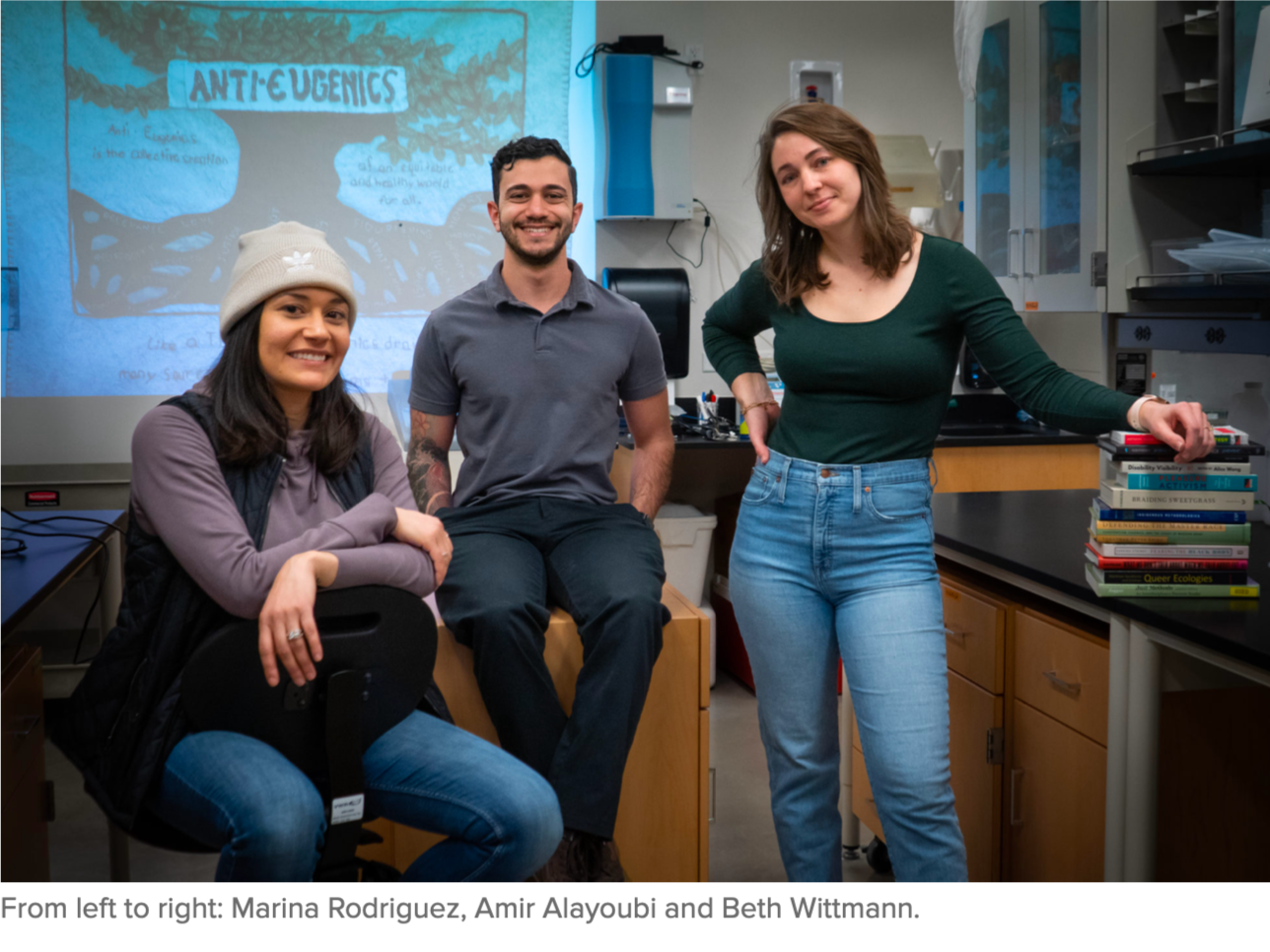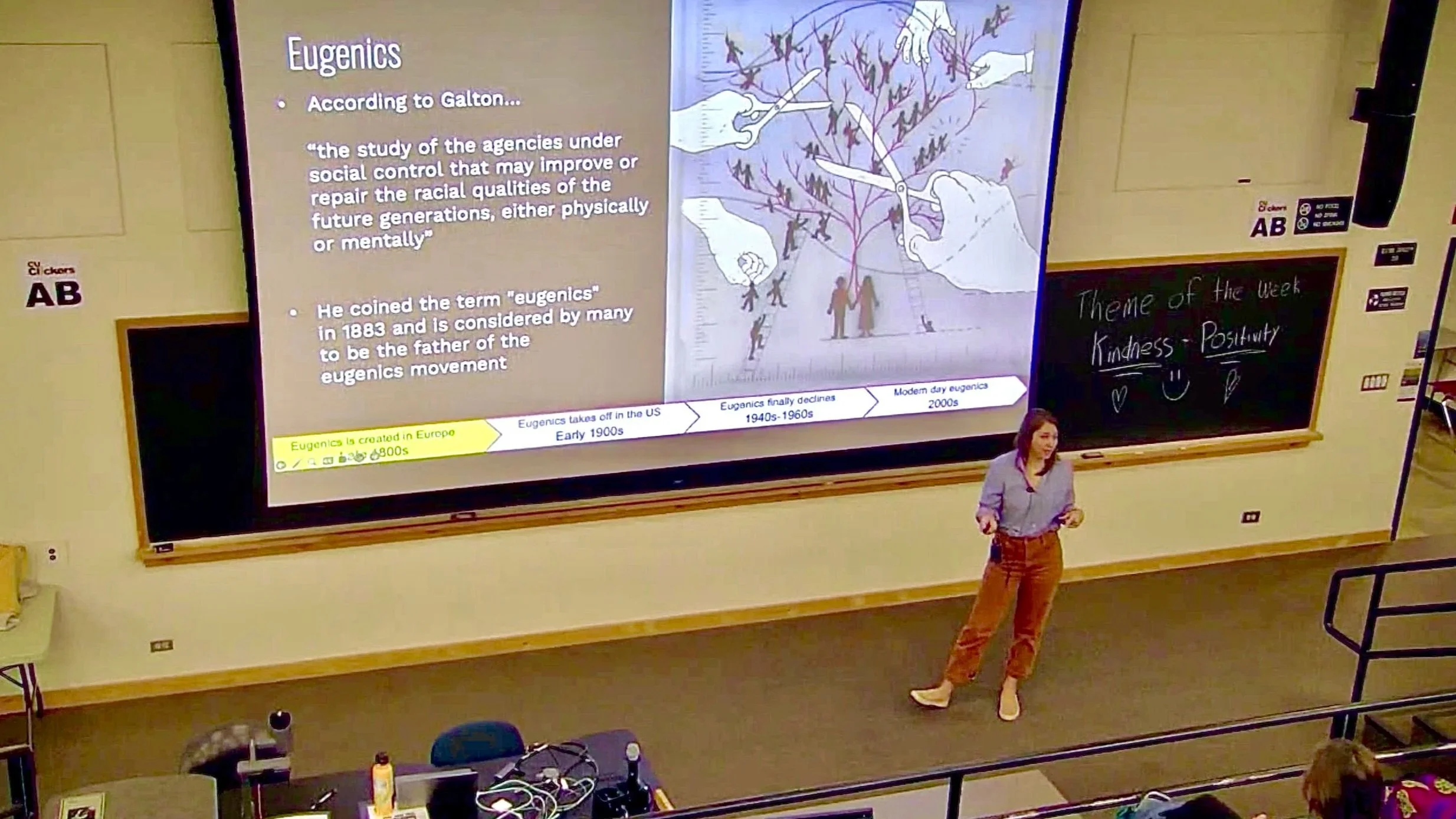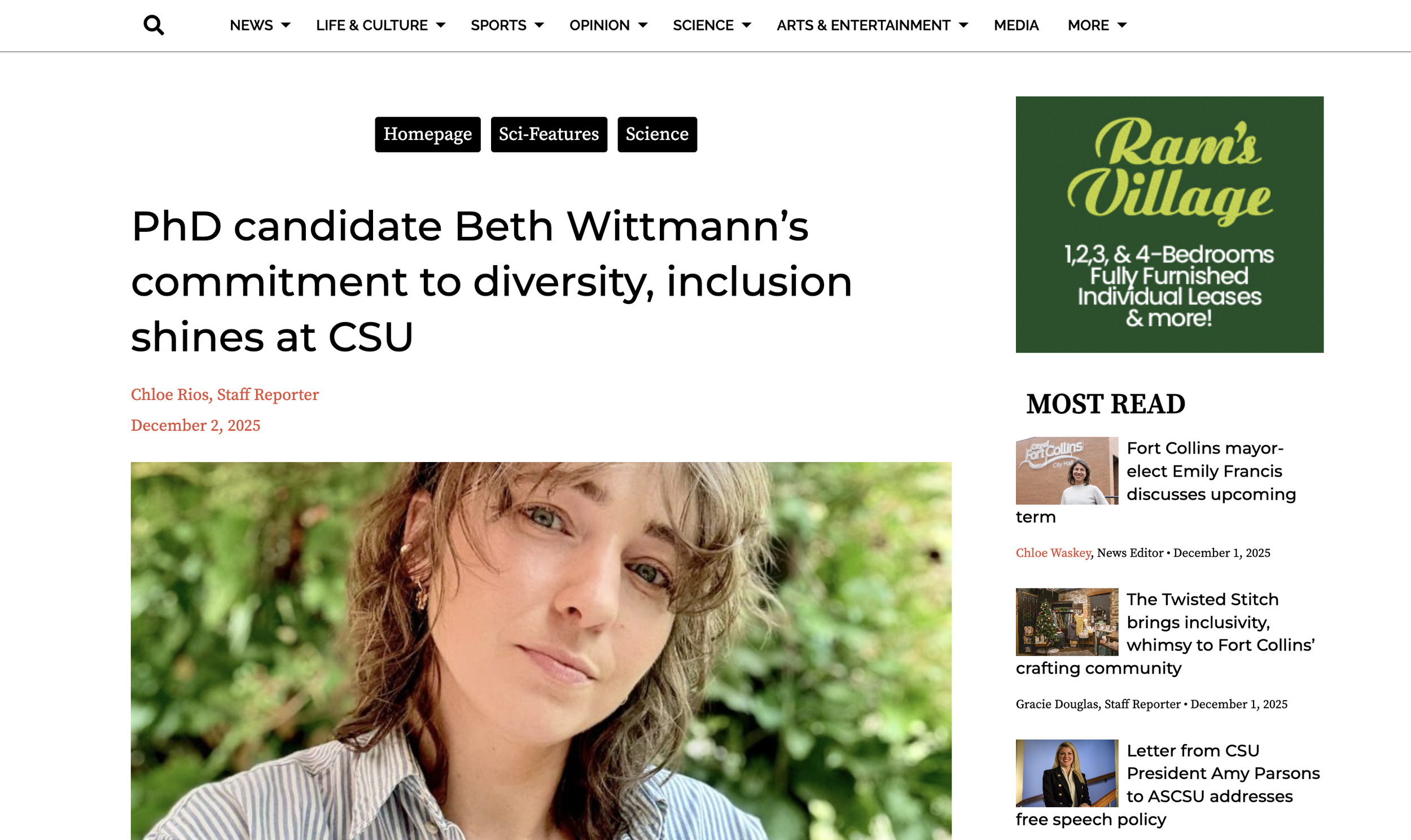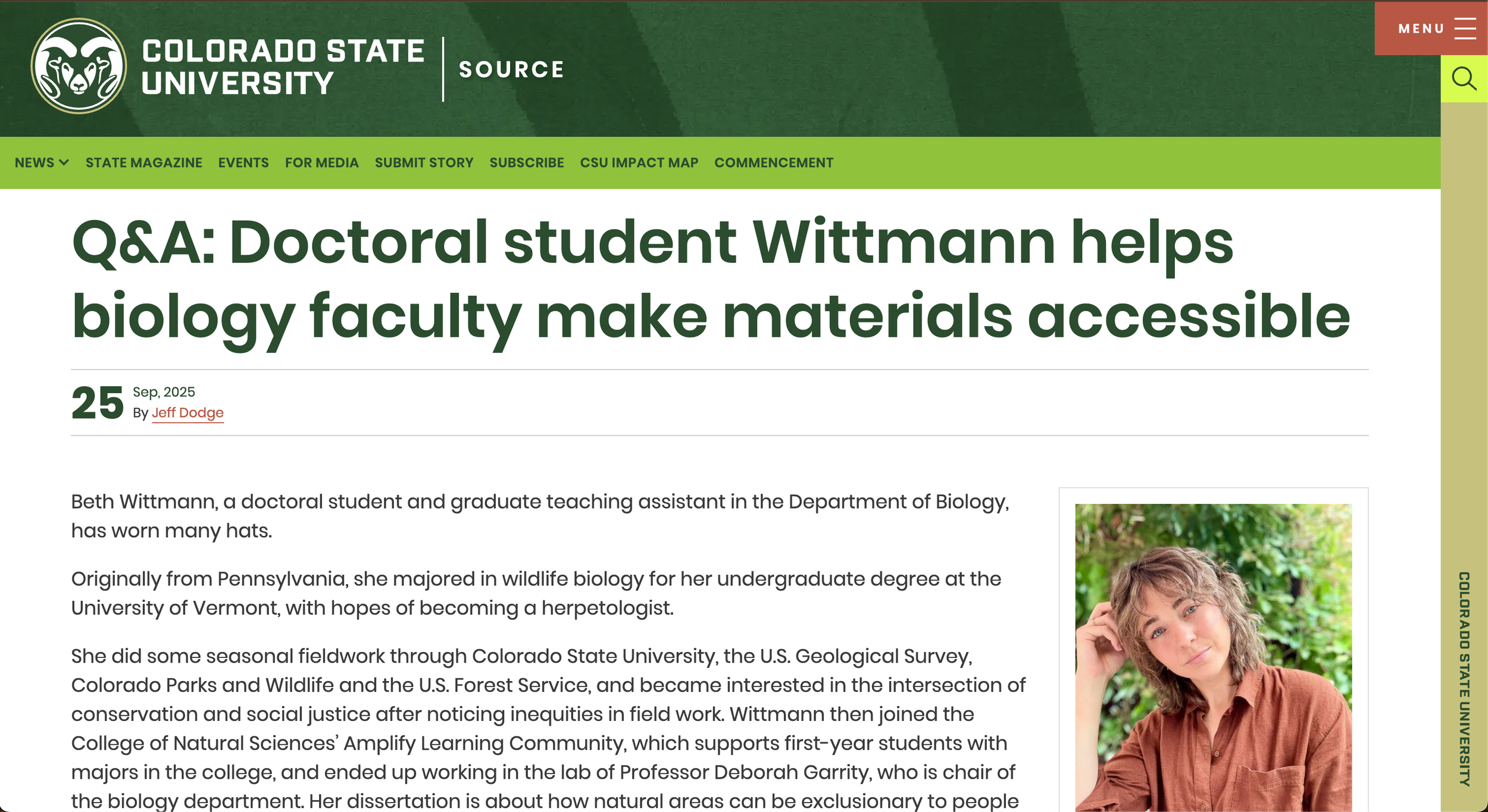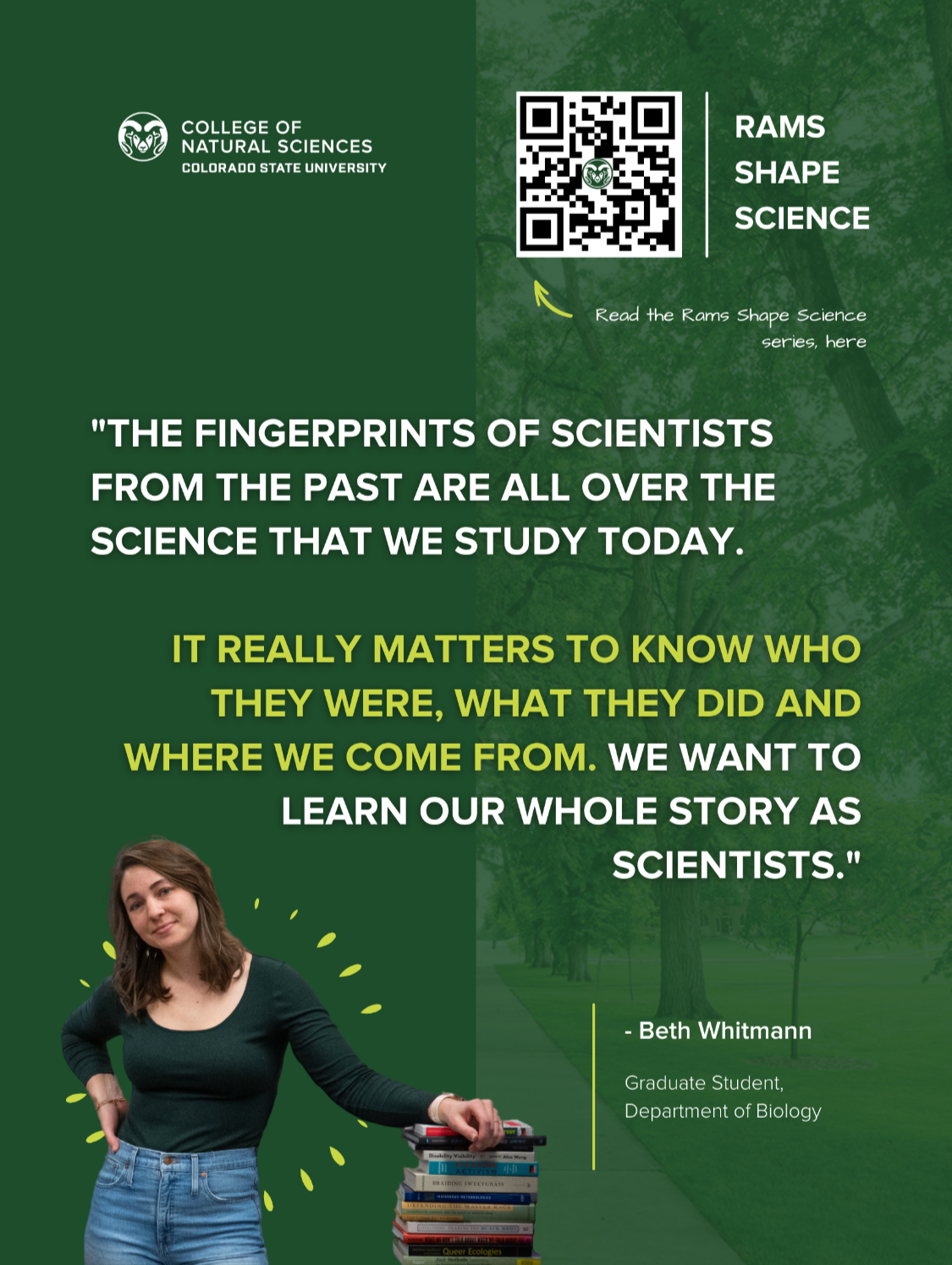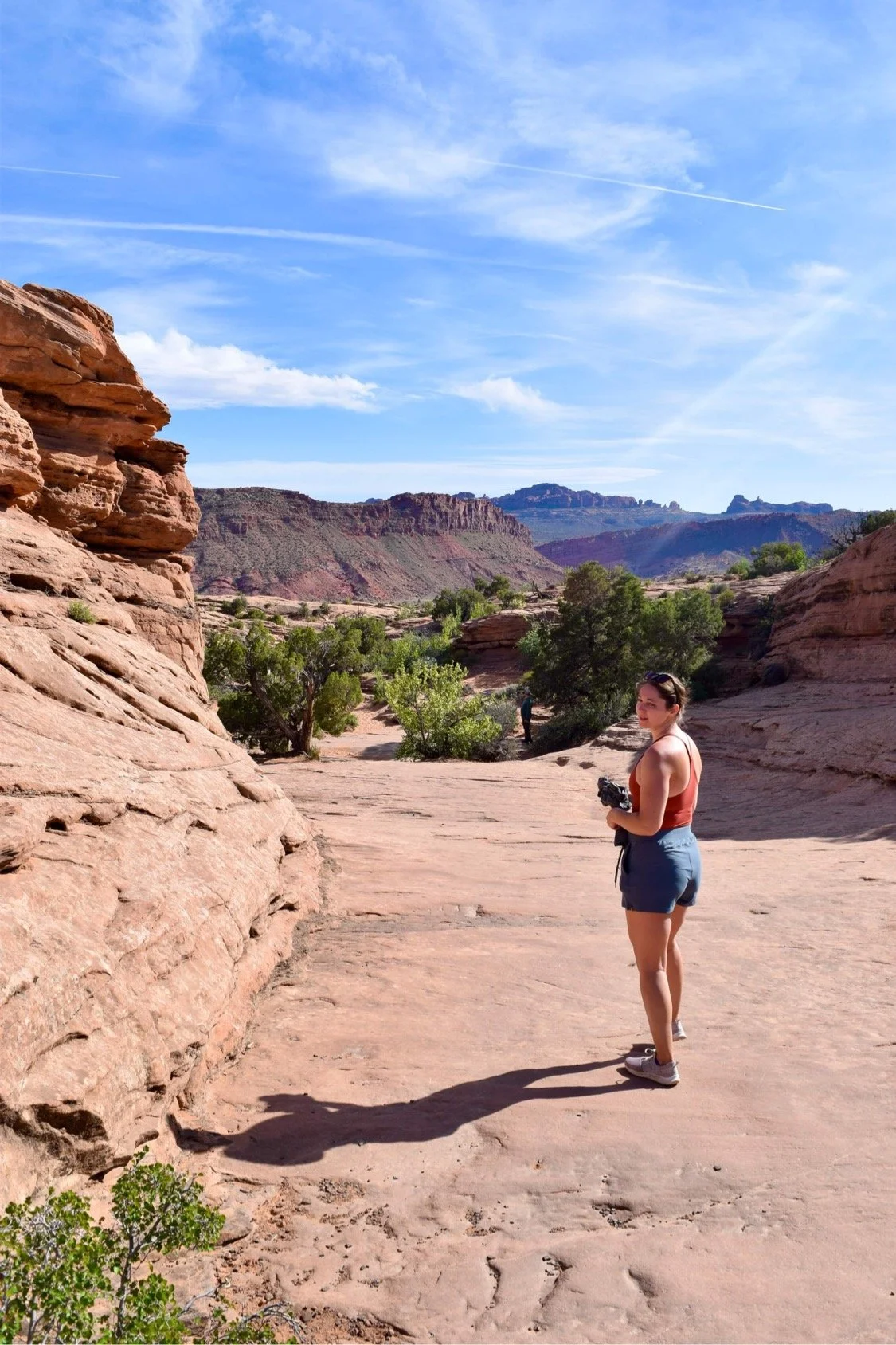
Beth Wittmann (she/they) is a critical environmental historian and researcher invested in fat and disability liberation whose interests center around social and historical constructions of health and nature.
Bio
Academic
Beth is a doctoral candidate in the Biology department at Colorado State University (CSU) who collaborates often with faculty in the Human Dimensions of Natural Resources and Race, Gender, and Ethnic Studies departments.
She takes a critical lens to history to expose the ways fatphobia and ableism were built into nature spaces and how systems of oppression continue to create exclusionary outdoor experiences. They highlight experiences of the fat and disabled community through qualitative research.
Beth is expecting to graduate with a doctoral degree in Biology from CSU in May of 2026.
Instructor
Beth is also a co-designer and co-instructor of the biology graduate seminar course Recognizing and Addressing Oppression in the Sciences which approaches equity issues in STEM from a systemic lens. The course covers topics such as the history of race science and eugenics, ecofascism, the politics and expansive biology of sex/gender, medical racism, anti-fat bias, and Western science as a tool of colonialism.
They have also taught multiple lab courses as a graduate teaching assistant including
Life 103 Biology of Organisms-Animals and Plants,
NR 140 Diversity and Inclusion in Natural Resources,
BZ 329 Herpetology where they have been the lead TA for the past 4 years.
Beth also co-designed and co-instructed NSCI 170 Perspectives and Communication in Science as a graduate research assistant with their dear friend and colleague Xander Peer Keller.
Recent Features and Recognition
Profiled in Colorado State University’s Rocky Mountain Collegiate
Interviewed about her accessibility work and dissertation topic.
Awarded Colorado State University College of Natural Sciences’ Graduate Student Excellence in Teaching and Mentoring
After winning this award at the department level in the spring of 2025, Beth was nominated at the college level and was recognized for their work in accessibility, their mentorships of students with marginalized identities, and their pedagogical skills which include co-creating two courses.
Recognized by Colorado State University’s Source as a Champion of Accessibility
Profiled for their unique contributions as a graduate student towards increasing accessibility in the biology department.
Featured in the Colorado State University College of Natural Science’s Rams Shape Science Series
Meet outstanding members of the College of Natural Sciences community who are shaping the future of science, our society, and the world.
Personal
Beth became a nature person growing up in the deciduous forests of Scranton, PA, a herpetologist in the lakes and mountains of Burlington, VT, and the person they are now in the social justice community of Fort Collins, CO. She lives and works in Fort Collins which is located on the traditional and ancestral homelands of many Indigenous Nations and Peoples, including the Nunt'zi (Ute), Hinono'eino' (Arapaho), and Tsistsistas (Cheyenne).
Inclusivity in field work, reading in the sun, poetry, art, family, and giving little gifts out of the blue are all very important to her.
